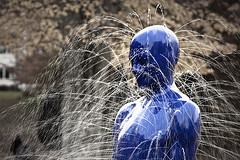Mary-Rose Papandrea's blog
Copyright 2007-25 Digital Media Law Project and respective authors. Except where otherwise noted,
content on this site is licensed under a Creative Commons Attribution-Noncommercial-ShareAlike 3.0 License: Details.
Use of this site is pursuant to our Terms of Use and Privacy Notice.
content on this site is licensed under a Creative Commons Attribution-Noncommercial-ShareAlike 3.0 License: Details.
Use of this site is pursuant to our Terms of Use and Privacy Notice.


 On the morning of July 11, the House Judiciary Subcommittee on Crime, Terrorism, and National Security held a
On the morning of July 11, the House Judiciary Subcommittee on Crime, Terrorism, and National Security held a  There has always been an active debate about whether the First
Amendment affords government outsiders (like the media) any protection
when they disseminate classified national security information without
authorization.
There has always been an active debate about whether the First
Amendment affords government outsiders (like the media) any protection
when they disseminate classified national security information without
authorization.

